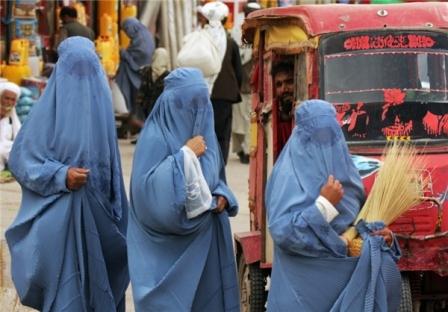Random testing of 500 people reveals a third are infected with Covid-19, prompting fears about country's ability to cope with outbreak
Publish dateTuesday 5 May 2020 - 11:23
Story Code : 209320
The coronavirus may be circulating undetected in Afghanistan after a random sample of residents in the capital found nearly a third were infected with the disease.
The ministry of public health said it had conducted 500 random tests in the capital, Kabul.
The prospect of widespread infection in a country where the health system has been shattered by war and low funding has alarmed health officials.
Afghanistan, a country of 37 million people, has recorded just 2,900 cases of Covid-19 and 90 deaths but these low numbers are thought to be a reflection of low testing.
The results of the random tests in the Afghan capital of Kabul are "concerning," said Public Health Ministry spokesman Wahidullah Mayar. A total of 156 residents had tested positive after being given two separate tests.
"It gives us a clear indication about the extent of the problem and how serious it is," he told the Telegraph. "Therefore it's an alarming sign for us to be more vigilant, increase our precautionary measures, increase our preventative measures and ask Kabul residents to observe social distancing."
Ongoing war, poverty, poor healthcare and a large number of internal refugees all add up to make it one of the most exposed countries to the virus on the planet. The country has only 400-odd ventilators.
Afghanistan has imposed bans on movement and gatherings to try to stop the spread of Covid-19, but the measures are being widely flouted.
The ministry of public health said it had conducted 500 random tests in the capital, Kabul.
The prospect of widespread infection in a country where the health system has been shattered by war and low funding has alarmed health officials.
Afghanistan, a country of 37 million people, has recorded just 2,900 cases of Covid-19 and 90 deaths but these low numbers are thought to be a reflection of low testing.
The results of the random tests in the Afghan capital of Kabul are "concerning," said Public Health Ministry spokesman Wahidullah Mayar. A total of 156 residents had tested positive after being given two separate tests.
"It gives us a clear indication about the extent of the problem and how serious it is," he told the Telegraph. "Therefore it's an alarming sign for us to be more vigilant, increase our precautionary measures, increase our preventative measures and ask Kabul residents to observe social distancing."
Afghanistan has imposed bans on movement and gatherings to try to stop the spread of Covid-19, but the measures are being widely flouted.
There have been anecdotal reports of large numbers of returnees dying since, but poor record keeping and patchy testing has made the claims difficult to monitor.
The city of Herat, close to the border with Iran, has been the epicentre of Afghanistan's outbreak. Doctors in the city said residents were largely ignoring lockdown precautions.
One doctor at a major public hospital in the city, who declined to be named, said: “As people are still freely walking around, we cannot have a good prediction about the future of the virus in Herat.
“This can have catastrophic consequences as we are yet to reach the peak of the disease in Herat, so we should wait for the bad days to arrive.”
The Taliban has claimed it is launching its own anti-coronavirus public health campaign, delivering lectures on safety measures in territory they control.
In parts of the country, there have been reports of Covid-19 patients being shunned by their neighbours and even refused food from the local markets.
Source : Afghan Voce Agency(AVA)
avapress.net/vdcf01d0xw6dxma.r7iw.html
Tags
Top hits







